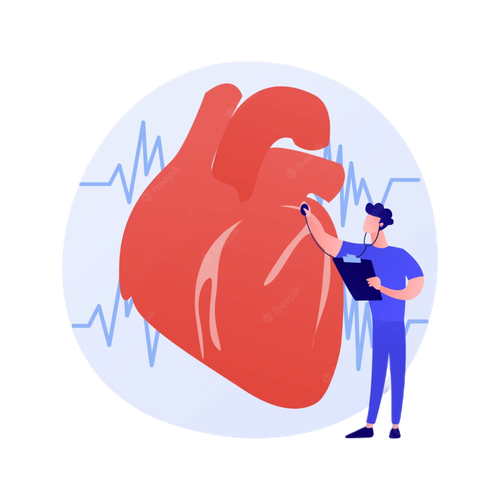

About Arrhythmia Surgeries
cardiology Arrhythmia Surgeries
Arrhythmia surgeries are medical procedures performed to treat irregular heart rhythms or arrhythmias. These abnormal heart rhythms can disrupt the normal pumping action of the heart, leading to inefficient blood circulation and potentially life-threatening conditions. Arrhythmias can be caused by various factors, including heart disease, structural abnormalities, electrolyte imbalances, or even certain medications.

More About Arrhythmia Surgeries
Arrhythmia surgeries are generally safe and effective, but like any medical procedure, they carry some risks, such as infection, bleeding, or damage to blood vessels or surrounding organs. The specific choice of treatment will depend on the patient’s medical history, the type of arrhythmia, its severity, and other individual factors. Patients should consult with a qualified cardiac electrophysiologist or cardiologist to determine the most appropriate treatment plan for their specific arrhythmia condition.
Frequently asked Questions
Arrhythmia surgeries are medical procedures performed to treat abnormal heart rhythms or arrhythmias. These surgeries aim to restore the heart’s normal rhythm and improve its function.
Arrhythmia surgery may be necessary when medications or other non-invasive treatments fail to control the irregular heart rhythm effectively. The decision to undergo surgery depends on the type and severity of the arrhythmia, the patient’s overall health, and their response to other treatment options.
Common arrhythmia surgeries include catheter ablation, implantable cardioverter-defibrillator (ICD) placement, pacemaker implantation, and the maze procedure. Each surgery targets specific types of arrhythmias and their underlying causes.
Catheter ablation is a minimally invasive procedure where thin, flexible wires called catheters are guided into the heart to destroy or isolate the abnormal heart tissue responsible for the arrhythmia.
An ICD is a small device implanted under the skin to monitor the heart’s rhythm continuously. If a life-threatening arrhythmia is detected, the ICD can deliver an electrical shock to restore the heart’s normal rhythm and prevent sudden cardiac arrest.
Why Choose us?
We stand for reliance and trust. Our goal is to give our customers their confidence back
Highly Skilled Doctors
100% Safe & Proven Practices
State of the art technology & Equipment
Affordable Pricing
Top Treatments
-
 Heart Check ups
Heart Check ups
-
 Paediatric Cardiology
Paediatric Cardiology
-
 Cardiac Diagnostic Services
Cardiac Diagnostic Services
Our Doctors


